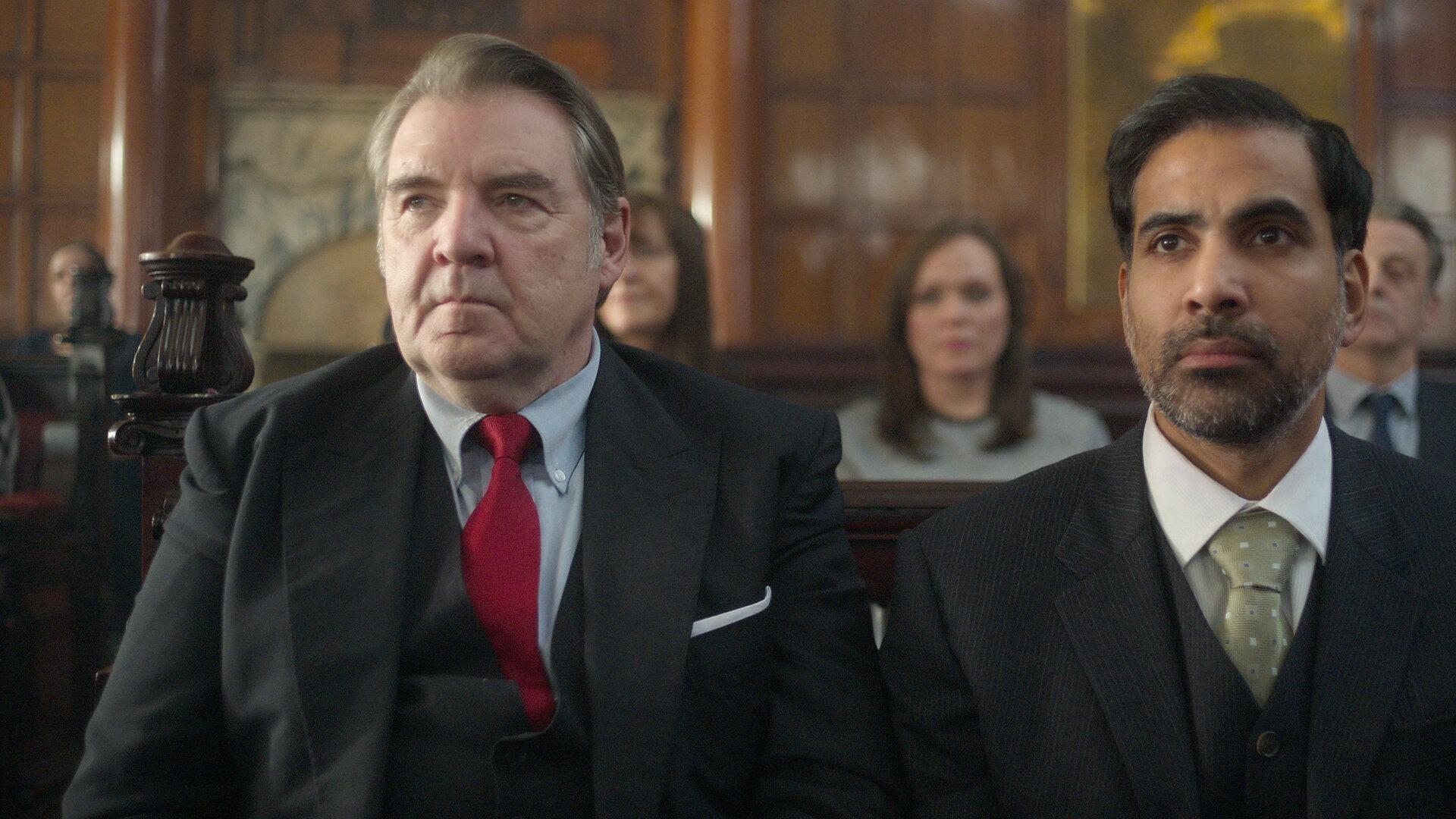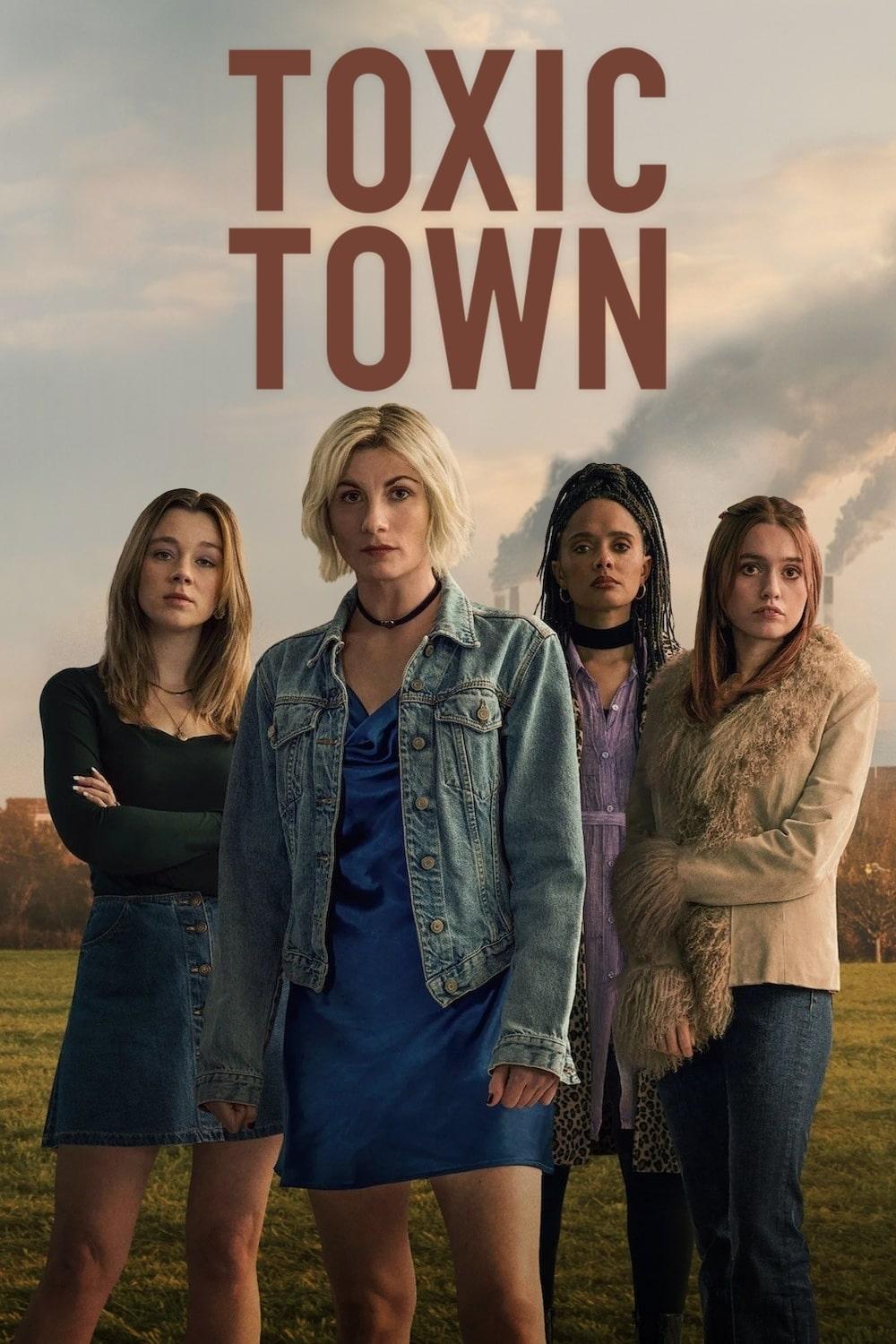
Toxic Town (2025)
Toxic Town (2025)
The finale of Toxic Town begins with a song — a moment of hope, of unity, and of rage. But before the voices can rise, they’re shut down by the council. It’s a stark reminder of the series’ central question: who gets to belong, and who gets discarded when jobs, image, and industry are prioritized over people? By now, it’s no longer just a legal battle. It’s a reckoning. As Susan, Tracey, and the other mothers head to court, the real front lines become visible — this is a fight against decades of silence, against a system that’s made forgetting easier than remembering. The bus ride to the courthouse is one of the most quietly powerful scenes in the episode. Nobody speaks. Eyes stare out the window. Hands shake. There’s no going back.
Inside the courtroom, the tactics of the defense are infuriatingly familiar. They don’t refute the evidence — they muddy the waters. They lean on “alternative interpretations,” on carefully curated doubt, on the idea that every scientific theory is just another opinion. It’s gaslighting on an institutional scale, and the show captures it with unsettling precision. This isn’t about truth. It’s about control. Des and his team push forward, even as the cracks grow. And then comes the final blow: Tracey is officially excluded from the case. Her reaction is devastating in its silence. No outburst, no drama — just a withdrawal. She doesn’t need to say anything. We know this was never about money. She just wanted someone, anyone, to acknowledge that what happened to her daughter mattered. Now, even that is denied. Susan tries to reach her, but Tracey’s already gone — not physically, but emotionally. And it hurts.
Meanwhile, even on the other side, the armor is slipping. Derek, one of the drivers at the heart of the cover-up, is visibly unraveling. His late-night confession to his wife — raw, guilt-ridden — is one of the most human moments of the series. He wasn’t the mastermind. He didn’t design the system. But he drove the trucks. He kept his head down. And now he’s drowning in the weight of it. The show never lets him off the hook, but it also never loses sight of how complicity works — quietly, incrementally, with just enough denial to let you sleep at night.
And then there’s Ted. After years in isolation, Ted returns — not as a hero, but as a broken man who finally decides to speak. His courtroom testimony is the emotional peak of the series. It’s not just a statement against the council. It’s a eulogy for the version of Corby that betrayed him. A town that silenced him, pushed him out, treated his warnings as threats. His words land like a hammer: steady, cutting, final. For once, someone tells the truth, fully and without apology.
The verdict comes — a win. There’s cheering, relief, release. But there’s also a shadow. Because no one is held criminally accountable. No names are listed. No one pays, except financially. The soil is still poisoned. The damage is still permanent. And Tracey, like many others, walks away with nothing.
The final scene doesn’t pretend otherwise. Susan and Nancy, sitting side by side on a quiet bench, share a tired but genuine smile. It’s not joy. It’s not triumph. It’s a hard-won peace between two women who refused to be erased. That small smile feels more powerful than any courtroom victory. It’s the moment the show has been building to — the acknowledgment that justice isn’t always sweeping or loud. Sometimes, it’s just surviving together.
Visually, the finale is stunning in its restraint. The greys of Corby feel heavier than ever, the courtroom scenes shot with a starkness that amplifies every twitch of anxiety. Susan’s testimony plays out against a dark, silent backdrop — no music, no tricks — just the weight of her words. And it lands.
Toxic Town doesn’t go for the neat wrap-up. It resists the easy ending. The verdict is real, but the justice is partial. That tension — that refusal to sugarcoat — is exactly what makes the finale so powerful. People like Tracey are left out. No one goes to prison. But for those who spoke, who showed up, who refused to forget, there is something that lasts: the truth. Spoken out loud. In public. On record. And that matters.
This was one of the most grounded, emotionally raw dramas I’ve watched in a long time. Toxic Town doesn’t just tell a story about environmental catastrophe — it tells the story of what it takes to name one. Of how silence protects power. Of how speaking can cost you everything. But also of how, sometimes, that spark — that one voice, then two, then more — can change the story a town tells about itself.
It ends not with closure, but with clarity. And maybe, that’s the most honest ending of all.
Loading




